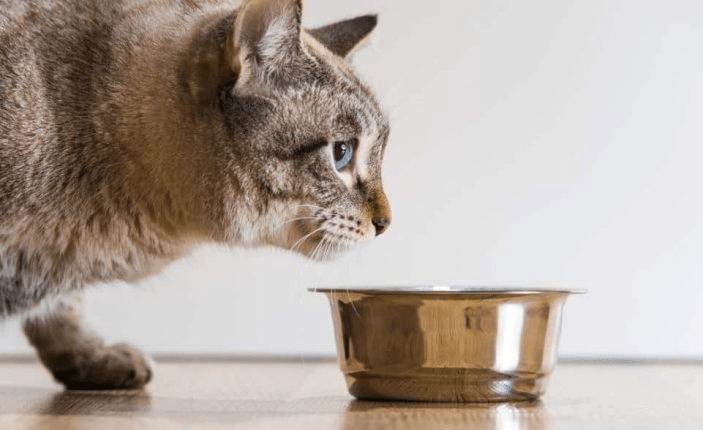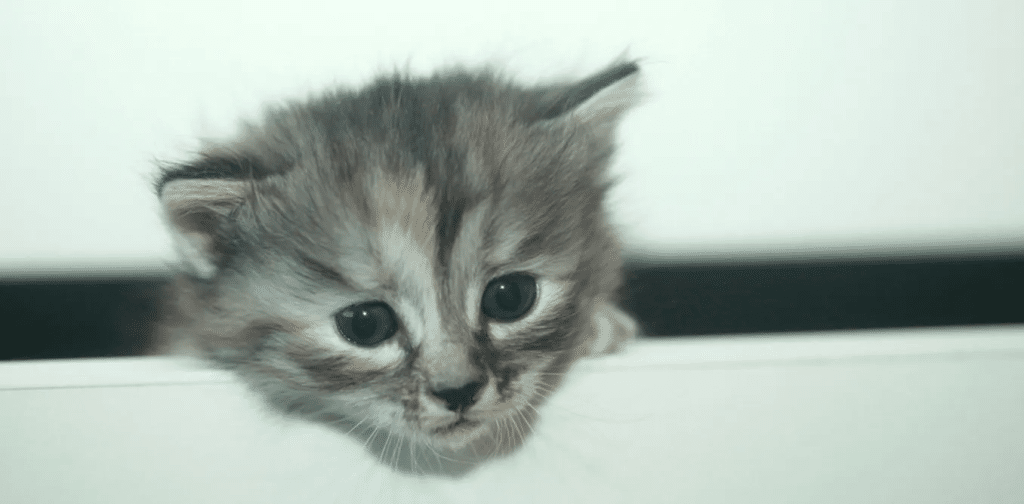
Source: Pet Care Advisors
Cats require some vitamins and minerals to prevent deficiency and maintain their health. Vitamins and minerals are also helpful in maintaining iron levels. These are very easy to find through food, and your pets should not need supplements or extra vet visits. However, if a cat’s diet doesn’t provide enough nutrients, it can be supplemented with vitamins and minerals.
In this article, we will explore vitamin B’s benefits for cats and discuss the problems that arise from vitamin B deficiency.
Let’s get started!
How Does Vitamin B Work?
Unlike fat-soluble vitamins, which accumulate in the body due to their inability to dissolve in liquids, the B-complex vitamins belong to water-soluble vitamins. B vitamins involve various functions, including regulating the immune system, brain function, fat and protein metabolism, vision, hair development, pregnancy and lactation, and stress management.
B Vitamins and Their Importance
Generally, vitamins are classified as either liposoluble or hydrosoluble, with vitamins A, D, E, and K belonging to the liposoluble vitamin group and vitamins B and C belonging to the hydrosoluble vitamin group.
The quality of the skin barrier function needs to have sufficient amounts of riboflavin (B2), niacin (B3), pantothenic acid (B5), pyridoxine (B6), inositol (B7), and biotin (B8). Alopecia, anorexia, weight loss, pruritus, and dry, flaky seborrhoea can result from deficiencies. Cats who are deficient in riboflavin, for example, may develop head and neck alopecia. Cats can’t convert *-carotene into retinol (vitamin A’s active form) because they have a high demand for water-soluble B vitamins. The fact that these companion animals can eat carnivorous foods in large quantities in nature shows that they are adapted to a predatory lifestyle.
How Does Vitamin B Affect Cats?
B-complex vitamins play vital roles in the welfare of our cats’ bodies. A cat’s cognitive function and neurological development are influenced by nutrients such as thiamine (B1), pyridoxine (B6), folic acid (B9), and cobalamin (B12). In cats, homocysteine is converted into various substances that benefit the body. The cat can develop cardiovascular problems or cognitive impairment if it is deficient in these vitamins.
In addition, cats need B vitamins because:
- Help enhance immune function.
- They play a crucial role in the nervous system’s biochemistry.
- They help to combat stress.
- In the process of cell differentiation, they play an essential role.
- Metabolic activity is stimulated.
- Skin and hair benefit from them.
Dosage for Cats
Numerous bodily functions depend on B vitamins. Vitamin B promotes a healthy nervous system, enhances mood, and promotes energy levels. Those who need more B vitamins might take supplements instead of eating enough. A medical condition or a poor diet may lead to B deficiency. A variety of foods, such as eggs, organ meats, seafood, vegetables, and whole grains, contain B vitamins.
Depending on the dosage form and manufacturer of dietary supplements, these vitamins are given at different doses. Besides pills and tablets, they can also be ingested as pastes or injections. Depending on the needs of each cat, the dosage varies. A cat with digestive issues or an older cat may need vitamin B12 or cobalamin alone, although they may need all the B-complex vitamins or only some. You should never give your cat supplements containing these vitamins intended for humans, and you should always obtain veterinary advice before giving your cat any supplements.
Nutritional needs for vitamin B depend on what diet you feed your cat, as natural foods differ from those added to dry, wet, or homemade diets. It is prudent to consult a veterinarian specialising in nutrition before adding any vitamin supplementation.
The Best Time to Give Cats B Vitamins

Source: The Conversation
B vitamins are water-soluble, which means they cannot be stored in the body but are excreted through the urine. Cats are more likely to suffer from B vitamin deficiencies compared to dogs. Your cat has likely lost a lot of B vitamins if he goes without food or water for several days. Cats with poor diets can also be deficient in B vitamins. There is a possibility that certain commercial foods may lose their B vitamins during their processing. A fish that hasn’t been adequately processed can interfere with the absorption of B vitamins.
As well as the above situations, vitamins can be administered as follows:
- A B12 injection vitamin will be prescribed for cats with kidney disease or kidney failure.
- A veterinarian often prescribes a B12 shot to cats with anaemia.
- The cat is deficient in vitamin B due to bowel problems affecting the stomach, intestine, or pancreas.
- It may be administered to address dehydration and vitamin loss which result from vomiting or diarrhoea.
- Lethargy and loss of appetite can also be symptoms of vitamin B deficiency. A deficiency of this nutrient causes the body to produce insufficient energy.
- When cats are severely deficient in vitamin B, they may experience seizures and depression.
Deficit of Vitamin B in Cats
Those with digestive disorders or the elderly may suffer from B-complex vitamin deficiencies even when fed the right proportions and amounts of cat food. It is because they may be unable to absorb essential nutrients, including vitamins. Vitamin B12’s absorption largely depends on the pancreas’ healthy functioning and intestinal mucosa. Those with inflammatory bowel disease, pancreatitis, or cholangitis see a shortened half-life of vitamins.
There has been evidence recently that older cats, particularly females, retain less calcium regardless of their diet. As a result, supplementation with vitamin B12 is recommended for all cats with gastrointestinal conditions and those with vitamin B12 levels less than 300 ng/L.
How Much Vitamin B Should Cats Take
Depending on the manufacturer, B vitamins are found in dietary supplements in different doses. In addition to pills and tablets, they can also be found in pastes and injections. Each cat requires a different dosage. A cat may be supplemented with all of the B-complex vitamins or only a few, but supplementing with vitamin B12 or cobalamin alone is especially common in cats with digestive issues or older cats. If you are unsure, always ask your veterinarian for advice.
Nutritionally speaking, vitamin B depends on the type of diet your cat is on. Adding natural food to a diet composed primarily of dry food, wet food, or a homemade diet will have different effects. If you plan to supplement your pet’s diet with vitamins, consult a veterinarian specialising in nutrition first.
How to Give Vitamin B to a Cat?
It depends on the preparation, your cat’s needs and how much vitamin B you should give it: one or two tablets, a specified amount of paste, or injections. The cat must be administered vitamin complexes daily to avoid accumulation in its body. The complexes dissolve in water, so they must be given in a liquid form.
A vitamin B supplement can be given to cats suffering from cognitive impairments, which also contains L-carnitine and L-tryptophan, and this helps neurons, and brain cells communicate.
Side Effects
B vitamins have no toxic side effects because they don’t accumulate in the body. However, it may cause muscle weakness and incoordination if high or prolonged doses of pyridoxine or vitamin B6 are taken. Taking these vitamins rapidly can also lead to side effects such as sickness, nausea, or vomiting. Allergies are uncommon, but they do occur. Hence proper handling of dosage is required.
Conclusion
Every cat needs B vitamins to survive. The intrinsic factor of this essential vitamin cannot be overstated. They thrive on a diet that consists of meat and vitamins to keep them healthy. Without B vitamins, cats may develop health issues.
Ensure to give them food and vitamin supplement items containing all necessary vitamins!
Frequently Asked Questions
What is the recommended amount of vitamin B for cats?
Since B vitamins are widely available for human use, they must be divided into doses that fit a cat. Approximately 1/10th of a human dose should be given daily to a 10-lb cat.
Can vitamin B calm cats?
Hours after taking supplements or treats, your cat will start to relax. They also support cognitive function, improve brain health, and soothe the nervous system.
What time does a cat take to experience the effects of vitamin B?
Depending on the cat, vitamin B may take a few hours to a day before it begins to work. Depending on a cat’s age, type, and other factors, this can vary.
Are B vitamins suitable for cats?
Every cat needs B vitamins to live a healthy life. Cell metabolism depends on these water-soluble nutrients for growth, development, and energy production. Due to their water-soluble nature, these substances are not stored in the body. Instead, they are eliminated through urine.
Do cats need vitamins every day?
All the nutrients cats need to thrive are included in commercial pet foods. While we vary our diet from day to day, most cats eat the same food every day. A daily multivitamin is not required for pets whose diets are created with this assumption.
Can I give vitamin B complex to my cat?
Vitamin B human-grade is not safe for your cat because it would cause him to overdose. Animals cannot absorb Vitamin B12 by mouth and need to be injected with it.
How much vitamin B does a cat need per day?
Supplements for B vitamins are widely available for human consumption, so cat-sized doses are required. An approximately 10-pound cat requires about a tenth of what a human takes daily.
